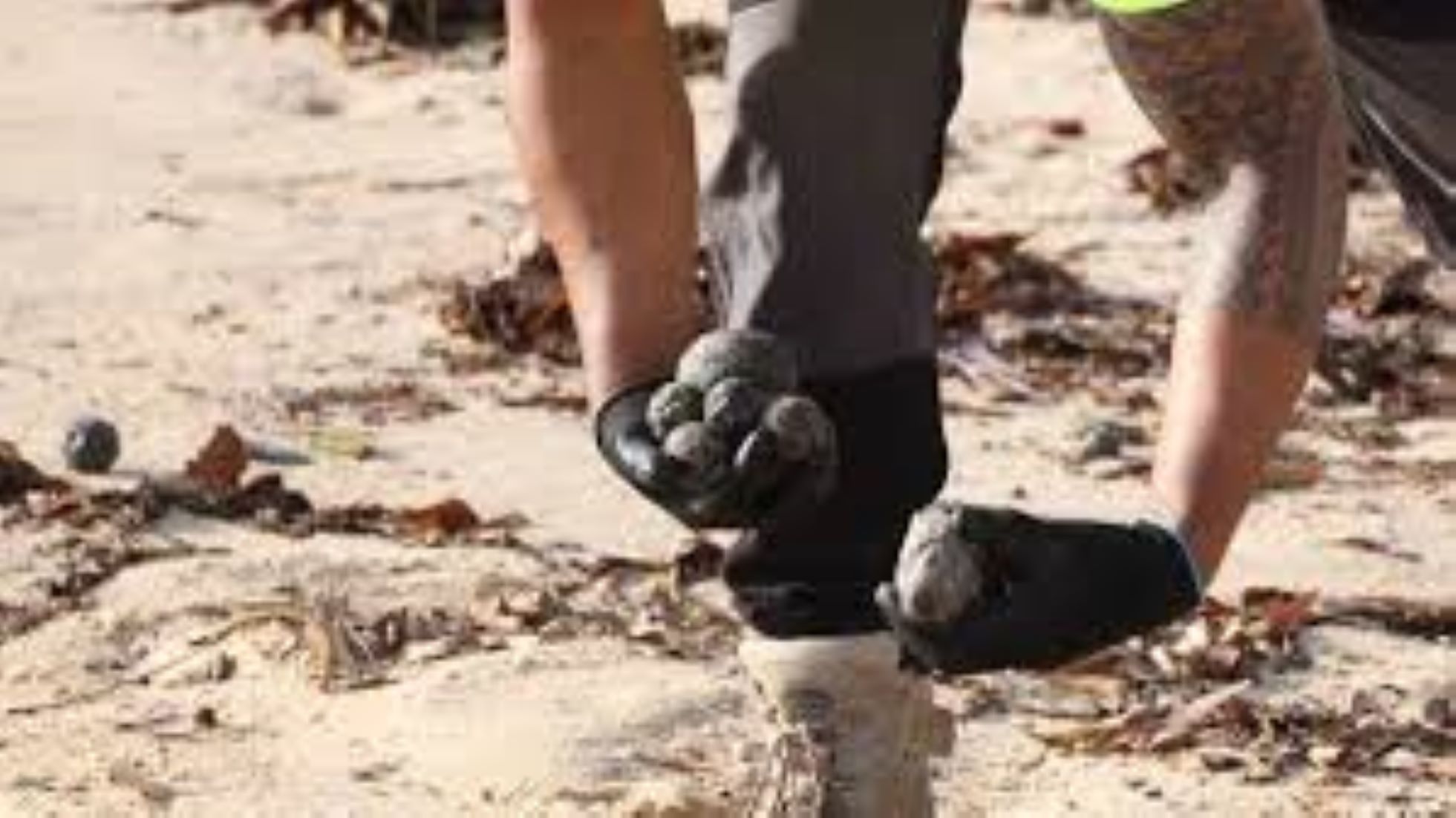SYDNEY, Oct 17 (NNN-AAP) – Thousands of mysterious black balls of debris that washed ashore and forced the closure of two Sydney beaches have been identified as a phenomenon known as “tar balls.”
Authorities last night confirmed that, the golf-ball sized pieces of debris are a hydrocarbon-based pollutant, consistent with the makeup of tar balls, which are formed when oil comes into contact with debris and water, as a result of an oil spill or seepage at sea.
The popular Coogee beach in eastern Sydney in the state of New South Wales (NSW) was closed on Tuesday, after lifeguards found the balls washed ashore along the length of the beach.
The local Randwick City Council yesterday closed the nearby Gordons Bay Beach, after additional debris was found, and warned the public not to go near or touch the balls.
Randwick Mayor, Dylan Parker, said in a statement last night that, the council was working with the Environment Protection Authority (EPA), and ports and transport agencies, to safely remove and dispose of the material.
“Our community is rightfully very protective of our natural environment, and this has been a very concerning incident,” he said.
“We have engaged an expert occupational hygienist and a specialist waste removal contractor, who are currently systematically removing the debris from the beaches in accordance with an agreed safe work method statement, developed with the NSW EPA.”
No oil spills have been reported by vessels off the coast of Sydney, but council workers on jet skis spotted a suspected oil slick out at sea and local surfers reported encountering wildlife coated in black.
Penny Sharpe, the NSW environment minister, told reporters yesterday that, debris balls were also found on Wedding Cake Island approximately one km off Coogee beach.
She said that the EPA was working with government agencies and forensic scientists, to identify the source of the contamination and what risks it presented.– NNN-AAP






